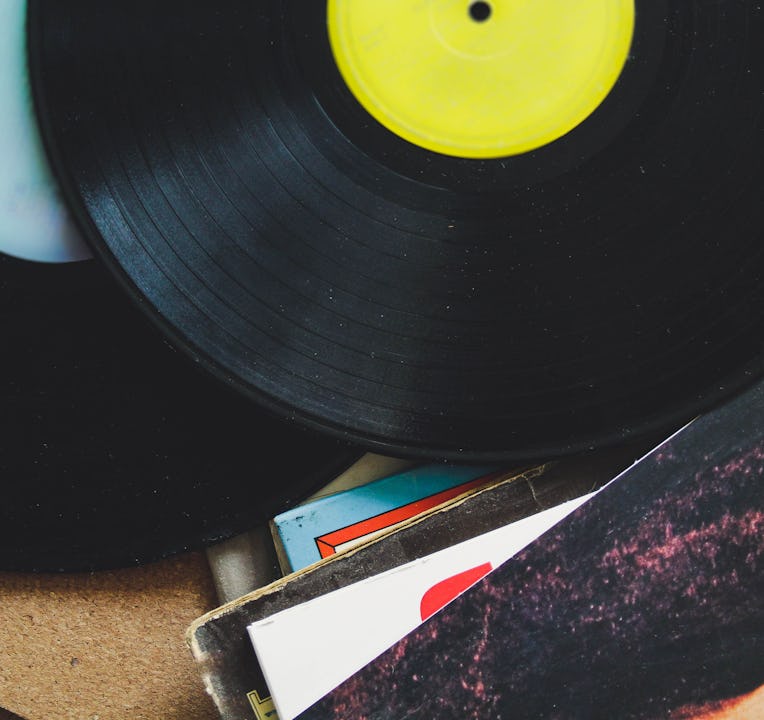Today, the iPod is dead and vinyl is strangely revived. It has outstripped CD sales to such a degree that record plants are struggling to keep up with the demand. A recent survey illustrated not only the huge number of records sold, but the wide variety of artists and genres represented.
As one might expect, some of the most popular musicians sit high atop the list: Harry Styles, Olivia Rodrigo, Kendrick Lamar, Taylor Swift. At the same time, reissues of seminal classics like Nirvana’s Nevermind, The Beatles’ Abbey Road, and Fleetwood Mac’s Rumours are ranked close by. Jack White, whose years of championing the format have earned him the right to say “I told you so,” recently stated in a profile for Variety, “It’ll be streaming and vinyl, streaming and vinyl, probably for at least the next 10 years.” Which raises an obvious question: Who’s buying vinyl in such numbers and why? The former is easily answered (basically everyone). The latter is more difficult, for the same reasons that it’s hard to know why anyone likes any type of music, which is an admittedly easy dodge. For the record, I’m inclined to be more skeptical about how many of these people are buying records to listen to as opposed to using them as decoration.
At any rate, what’s more interesting to consider (beyond wondering how long vinyl will last) is to what degree new albums released on vinyl are worth buying. I’ve talked about how much I love CDs and the logic behind why I buy them. Vinyl is a harder sell. The same positives that most anyone lists (tactility, sound, size) are hallmarks of what people appreciate about physical media in general. But I have to admit, with vinyl, to operating on what my girlfriend calls a “no skips” policy — every song has to pull its own weight, creating that zesty kind of anticipation that can only come from listening to one stone-cold banger after another. Basically, all killer, no filler. None of the albums released in the last two years that rank on the top 50 best-selling records fit that description. Not SOUR, a promising debut album with an opening track that is also its best song, not Harry’s House, which seems to have pissed a lot of people off despite being just fine.
If you keep looking down the list, you’ll find stereotypical record store mainstays like Pink Floyd’s Dark Side of the Moon and Led Zeppelin’s Led Zeppelin IV, but also albums that, if not cynically, at least self-consciously evoke an aesthetic nostalgia for the days when those records came out: Tame Impala’s Currents, Childish Gambino’s Awaken My Love, Harry Styles’s Fine Line. Sometimes, if something looks and sounds like the original thing, it’s just as good, or maybe good enough. So it’s clear that the rarefied attitude behind buying a record has changed. But Jack White’s apt prediction that the future will toggle between streaming and vinyl, a symbolic material contrast if there ever was one, seems to signal a bifurcated, slightly self-conscious desire on the part of listeners about how we treat and value music. In the typical framing of streaming as ephemeral, scattered, algorithmically-mandated and vinyl as the epitome of all that is curated, tangible, lasting, it would seem that there’s some sort of tension between those who crave the focused pleasures of analog versus the instant convenience of having every song ever written in their pocket. But it also seems that there’s a fair bit of demographic overlap between both camps.
White, in the same Variety profile, went on to say, “I knew that we could catch enough attention that we could get people interested in it for a year or two. But I didn’t foresee now where you see vinyl records on drug commercials in America, and record players are for sale at Staples or Office Depot, and Target has a vinyl section with colored, limited-edition vinyl.” On the one hand, vinyl is undeniably popular in a way that would have seemed like a quaint, desperate dream ten years ago. On the other, White inadvertently points out that vinyl’s widespread availability makes it disposable. Maybe that’s the point and a good thing. If vinyl was once associated with snobby audiophiles who looked down on your musical taste, great. But an over reliance on “numbers speaking for themselves” makes the same amount of sense as ceding cinematic taste to a Rotten Tomatoes score. What is selling well has never necessarily correlated to a tidy narrative about where people place value. Just look at how popular cassette tapes have again become, not because of their function, but their look. The most inferior, easily-degraded of audio formats that used to be popular due to its affordability now evokes a certain time and place, the same as vinyl. The irony is that, once it’s no longer playable, all that’s left is a nice case, which, in the end, may be what people are really after.
Nicholas Russell is a writer from Las Vegas. His work has been featured in The Believer, Defector, Reverse Shot, Vulture, The Guardian, NPR Music, and The Point, among other publications.
